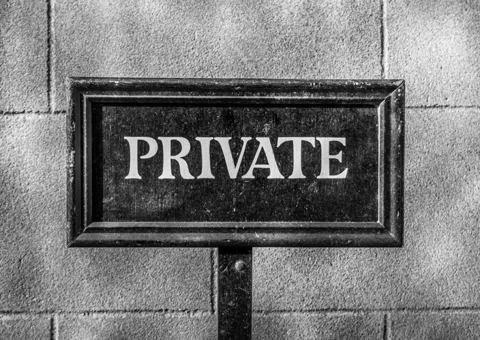
Any document exchanged between a lawyer and a client is a protected correspondence
JUDGMENT
Laurent v. France 24.05.2018 (no. 28798/13)
SUMMARY
The case concerned the interception by a police officer of papers that a lawyer (Mr Laurent) had handed over to his clients, who were under police escort, in the lobby of a court building.
The Court found that the interception and opening of Mr Laurent’s correspondence with his clients, in his capacity as a lawyer, had not corresponded to a pressing social need and had therefore not been necessary in a democratic society within the meaning of Article 8 of the Convention.
The Court specified that a folded sheet of paper on which a lawyer has written a message before handing it over to his clients was protected correspondence within the meaning of Article 8. It emphasised that the content of the documents intercepted by the police officer was immaterial given that, whatever its purpose, correspondence between lawyers and their clients concerned matters of a private and confidential character. In the present case, Mr Laurent, in his capacity as a lawyer, had written and handed over the papers in question to his clients in full view of the senior escorting officer, without attempting to conceal his actions. In the absence of any suspicion of an unlawful act, the interception of the documents could not be justified.
PROVISION
Article 8
PRINCIPAL FACTS
The applicant, Cyril Laurent, is a French national who was born in 1976 and lives in Brest (France). He is a lawyer.
On 1 April 2008 Mr Laurent, who was acting as duty lawyer, conducted the defence of two persons who had been formally charged and placed under police escort.
After an adversarial hearing with the liberties and detention judge, Mr Laurent, who was wearing his lawyer’s robes, was waiting with his two clients at a table in the court’s lobby. The two defendants asked for his business card. He gave his contact details to one of them on a folded-up slip of paper. A deputy police sergeant asked to see the document. Mr Laurent reproached the police officer for failing to respect the confidentiality of the exchange with his client. The same sequence of events occurred with regard to the other defendant.
On 8 April 2008 Mr Laurent lodged a complaint with the Brest public prosecutor, alleging a breach of the secrecy of correspondence by a person exercising public authority. It was decided to take no action on his complaint. Mr Laurent filed a criminal complaint, together with an application to join the proceedings as a civil party, with the investigating judge of the Brest tribunal de grande instance.
On 4 January 2010 the investigating judge issued a discontinuance order, which was upheld by the Rennes Court of Appeal. The Court of Cassation dismissed an appeal on points of law.
THE DECISION OF THE COURT
Article 8 (right to respect for private life and correspondence)
The Court reiterated that Article 8 of the Convention protected the confidentiality of communications, whatever the content of the correspondence concerned, and whatever form it took, even where the sender or recipient was a prisoner. Thus, a folded sheet of paper on which a lawyer had written a message before handing it to his clients was protected correspondence within the meaning of that Article. Consequently, the fact of a police officer intercepting the notes drawn up by the applicant and handed over to his clients amounted to interference with their right to respect for the correspondence between them.
The Court pointed out that the exchanges between a lawyer and his or her client were privileged under Article 8 of the Convention. This meant in particular that prison authorities could open a letter from a lawyer to a prisoner solely when they had reasonable cause to believe that it contained an illicit enclosure which the normal means of detection had failed to disclose. In the present case, the Government had not submitted any reasons to justify the monitoring of the papers and did not maintain that they could have given rise to any particular suspicions. Furthermore, Mr Laurent, in his capacity as a lawyer, had written and handed over the papers in question to his clients in full view of the senior escorting officer, without attempting to conceal his actions. It followed that in the absence of any suspicion of an unlawful act, the interception of the relevant documents could not be justified.
The Court also emphasised that the content of the documents intercepted by the police officer had been immaterial since, whatever their purpose, the correspondence between lawyers and their clients concerned matters of a private and confidential character. It further noted that at every stage of the proceedings the domestic courts had held that while the events in issue did not merit a criminal prosecution, the senior escorting officer’s conduct had nonetheless amounted to a breach of the principle of uninhibited communication between a lawyer and his or her client.
In consequence, the Court concluded that the interception and opening of Mr Laurent’s correspondence with his clients, in his capacity as a lawyer, had not corresponded to a pressing social need and had not therefore been necessary in a democratic society within the meaning of Article 8. It followed that there had been a violation of that provision.
Article 41 (just satisfaction)
The Court held that the finding of a violation provided in itself sufficient just satisfaction for the non-pecuniary damage sustained by Mr Laurent(echrcaselaw.com editing).


